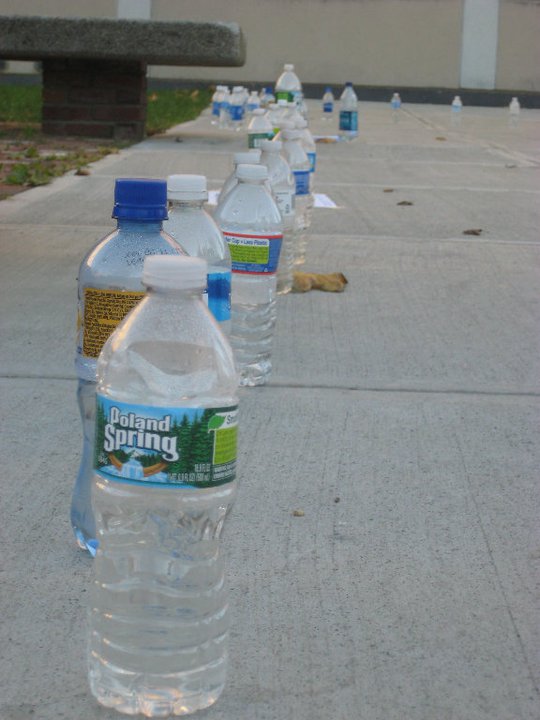

To coincide with its water consumption demonstration on Thursday, Nov. 11, the Recycling Club hosted a screening at 7:30 p.m. in the CSB Auditorium of Irena Salina’s award-winning “Flow: For Love of Water” – a documentary on the world’s water crisis and the underlying greed behind it.
While asking the question of whether or not anyone can really own water, the film showcases groups and individuals “providing practical solutions to the water crisis and those developing new technologies [creating] blueprints for a successful global and economic turnaround,” according to www.flowthefilm.com.
Recycling Club President and campus Recycling Coordinator Lauren Brois said she chose “Flow” because it offers a lot more information on water than “Tapped,” her other option, while connecting to the audience. Although it sheds light on many truths of such a relevant world issue, it remains accessible and inspiring.
Prior to the film, Charity Water co-President Nick DePalma had “a little exercise” in store, handing out a number of cups to various members of the audience. He continued to pass around a full bottle of water, representing all the water in the world, telling each person to pour as much as they’d like, keeping the world’s population (or other cups) in mind.
In the end, one cup on display was full and the others held equal, miniscule amounts – the full one representing America, which blindly uses and contaminates an
alarming amount every day.
“We can’t see other people,” he said, “[so] we really don’t have a concept of it.”
One of the points the film makes is that it would take $30 billion to supply the entire world with water, yet three times that amount is spent annually on bottled water, which only contaminates the supply.
The film also touches on the high amount of filtration testing tap water must go through, while the same requirements are not in place for bottled water. It continues to highlight the fact that Nestle pumps over 450 gallons per minute, while not paying one cent for it. At one point environmental lawyer Jim Olson claims, “Water is for survival, and who owns the water for survival owns you.”
This constant pumping, in turn, drains natural supplies and bodies of water, eventually contaminating their contents as the cycle resumes.
“Anytime you buy anything, you vote for it,” Brois said on the necessity of being an educated consumer. “You have to make sure anything you buy isn’t hurting yourself or others.”
Brois said she received a number of positive responses from the audience, and felt it was a great, enlightening end to an environmentally conscious day on campus. The Recycling Club had about 487 water bottles set up in various spots in the Humanities area from 8 a.m. to 8 p.m., accompanied by a variety of signs. These signs said things such as “On average bottled water costs 900 times the amount of tap water” and “This year, Americans will spend $40 billion on bottled water.”
“People can interpret what we are presenting and use the information to their own accord,” Brois said. “Even if people are saying it’s silly, or something [they] don’t understand the point of, they’re still thinking about something they otherwise wouldn’t have.”
As of yesterday, the Recycling Club has the Sojournor Truth Library’s lobby reserved for posters and signs regarding composting, trash and various other topics. These will remain up until Nov. 30. Meetings are held every Monday in Student Union 401 at 8 p.m.
